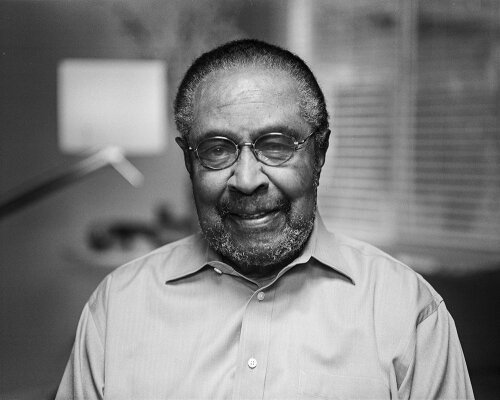
Ethnic Studies should inspire mutual respect, fight racism, and celebrate ethnic group accomplishments and perspectives.
Don’t let extremism poison your curriculum.
State Mandate Update: The proposed California 2026 budget does not include funding for Ethnic Studies, and the subject is not yet a state graduation requirement. This provides an opportunity for school districts that do want to implement Ethnic Studies, to do so in the thoughtful and intentional manner the subject and students deserve.
The Problem: Some school districts are unwittingly adopting radicalized curricula, which only focus on power structures, promote specific narrow ideology, and lack critical analysis. This curriculum uses an extremist or politicized approach, often called “Liberated” Ethnic Studies, which violates several state Education Codes and district Board Policies. Governor Gavin Newsom, alarmed by this type of curriculum, stated it should "never see the light of day.”
Unfortunately, activists are now promoting this rejected materials to districts and some schools are falling prey to their efforts. Parents, community members, and educators are often shocked when they discover what is creeping into the classroom. A number of lawsuits have already been filed across the state, with more pending.
In colleges, Liberated Ethnic Studies is an openly politicized subject – one that Liberated activists explicitly state is rooted in specific politics and activism. This is why the ESMC draws the important distinction:
“At the college and university level, Ethnic Studies and related courses are sometimes taught from a specific political point of view. In K–12 education, it is imperative that students are exposed to multiple perspectives, taught to think critically, and form their own opinions.”
Constructive Solution: The constructive approach to Ethnic Studies elevates the contributions of ethnic minorities to the foundation, history, and evolution of our state and the United States. Constructive Ethnic Studies refers to any “regular,” non-politicized curricula and includes terms such as “Inclusive” or “Empowered” Ethnic Studies.
The constructive approach encourages student engagement while presenting a range of perspectives. It promotes student inquiry. It includes analysis of race and racism historically and in modern context. It enables students to see themselves in the curriculum and better understand their peers without stereotyping or disparaging others.
This chart illustrates the differences between the two approaches to Ethnic Studies.
| PROBLEM Liberated (Politicized) |
SOLUTION Constructive (K-12) |
||
|---|---|---|---|
| Focuses on promoting political ideology through a victim/oppressor lens | Focuses on ethnic groups’ histories, struggles, and contributions | ||
| Insists that resistance and revolution are the only answers to societal challenges | Promotes a range of approaches to bring about societal change | ||
| Pushes students to parrot dogma, regurgitate pre-assumed answers. Those who disagree are silenced or bullied | Pushes students to practice independent, critical thinking. Questions and dialog are encouraged | ||
| Romanticizes violent role models, dismissing civil rights leaders, such as MLK, as “passive” | Presents role models from a variety of ideological and political perspectives | ||
| Filters history only through anti-Western / anti-colonial lens | Promotes inquiry into history through multiple perspectives, per HSS guidelines | ||
| Establishes “us vs. them,” defines students based on skin color rather than character or behavior | Establishes community of mutual respect and empathy | ||
| Includes antisemitic language and concepts | Honestly addresses racism and discrimination without denigrating others | ||
| Trains teachers that they “must be rooted in the right politics” in order to educate | Insists that teachers’ politics should not be imposed on students, per EDC § 49091.12a | ||
| Equates capitalism with racism and meritocracy with white supremacy; promotes uncritical embrace of Marxism | Rather than veering into political ideologies, focuses on ethnic groups’ histories. Where relevant, discusses pros and cons of various systems | ||
| Trains students to identify as victims and be “co-conspirators” | Motivates students to be informed, engaged community members | ||
| Violates Ed Codes and legal (AB 101) guidelines | Follows Ed Codes and legal (AB 101) guidelines |
Don’t Be Fooled
Liberated Ethnic Studies advocates, and university partners, are selling their radicalized curricula and training to unsuspecting districts, using material that was rejected by the CA State Board of Education. The CA Department of Justice, the SBE, and Gov. Newsom’s office have all issued warnings about this, expressing “concerns over bias, bigotry, and discrimination.”
When districts infuse their curricula with liberated ideology, the result has been a surge of polarization, antisemitism, hate speech, and lawsuits.
“Liberated Ethnic Studies is what happens when education devolves into indoctrination, rendering the goal not the search for truth or the cultivation of critical thinking, but the call to revolution and the glorification of hatred.”
A Constructive Approach Ensures That:
Your course develops mutual respect, fights racism, and celebrates ethnic group accomplishments, while meeting state requirements and following state laws, including the HSS framework.
Students of different backgrounds come together, rather than driving a wedge between them.
There is increased community/parent support when implementing new Ethnic Studies curricula.
“I witnessed first-hand the effects of this [Liberated] type of curricula. After only weeks, I saw more clique-ish behavior, definitely more polarization, heightened verbal aggression, and even bullying.”
— 9th Grade Ethnic Studies Teacher, Northern California (Name withheld due to fear of retribution)
“I write this letter to you with great dismay, and great concern for the perversion of history that is being perpetrated by the [Liberated draft of the ESMC]. If this [model curriculum] is approved, it will inflict great harm on millions of students in our state.”
— Dr. Clarence Jones, Speechwriter, Legal Counsel, and Advisor to Dr. Martin Luther King, Jr.
“If your child’s school is employing the Liberated/Critical Ethnic Studies model, the resulting curricula is likely to focus on radical political activism.”
— Journal of Free Black Thought







